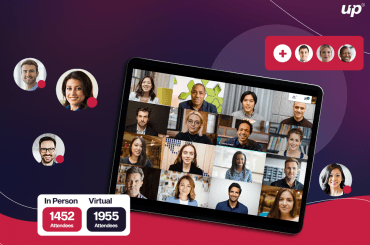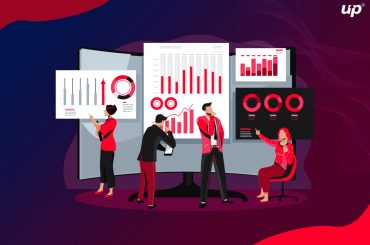While the use of data in structured and unstructured formats has been crucially relevant in strategic decision-making in various businesses. Cognitive analytics is the next generation of data structuring that involves cognitive analytics advancing to high-performance computing by combining artificial intelligence and natural language processing, machine learning, and deep learning techniques with data analytics.
How does cognitive analytics work?

Cognitive Analytics or cognitive computing applies human-like intelligence to certain tasks and collates a number of intelligent technologies – semantics, artificial intelligence algorithms, deep learning and machine learning. A cognitive application gets smarter and more effective over time by learning from its interactions with data and its users. These are, in the layman’s terminology, artificial intelligence that stimulates human thought or cognition and cognition in real-time settings.
An instance of cognitive analytics we are extremely familiar with includes Apple’s Siri, Google Assistant and Alexa which have Artificial Intelligence(AI) to recognise your voice and several commands that they have already programmed. Therefore, they are able to respond to and achieve your orders if it fits in their configuration.
Read Also: Python Frameworks list which are ruling market
Some of the success stories for Cognitive computing applied to businesses include-
Vantage Software
Cognitive analytics has been providing accurate, fact-based investment recommendations to financial managers in real-time. The company’s latest product, Coalesce, is powered by IBM Watson’s cognitive computing technology which allows employees to examine tens of millions of pages of documents, and explore available market intelligence, risk profiles, and financial profile data to provide better information to analysts.
Welltok
An instance from the healthcare industry, Welltok offers a cognitive-powered tool called CaféWell Concierge that can process vast volumes of data instantly to answer individuals’ questions and make intelligent personalized recommendations. Welltok offers CaféWell Concierge to health insurers, providers, and similar organizations as a way to help their subscribers and patients improve their overall health.
Edge Up
Edge up caters to around 30 million consumers playing fantasy football and the mobile app allows users to ask questions such as, “Do the Panthers play better on grass or turf?” or “Are the Cowboys emotionally ready for the game this Sunday?” The app sorts through a wealth of data, news reports, social media comments, weather reports, and more to provide insightful answers that can help fantasy football team managers make better decisions.
WayBlazer
Within the travel industry, WayBlazer’s travel planer powered with cognitive technology makes it easier for travelers to plan for trips by asking questions in natural language. The concierge asks basic questions and provides customized results by collecting and processing travel data as well as insights about traveler preferences.
Such type of cognitive-powered tool helps travelers to save time in searching for flights, booking hotels and plan activities without researching on several websites before finalizing on travel. Travel agents have been successfully using such a tool that has helped increase their revenues and customer delight at the same time.
The arenas in which Cognitive Analytics can serve as important game changers are as follows-
Healthcare
To assist medical professional in better treatment of diseases, and improve patient outcomes, healthcare has brought about a cognitive computing revolution. The cognitive computing system processes enormous amounts of data instantly to answer specific queries and makes customized intelligent recommendations. Cognitive computing in healthcare links the functioning of human and machines where computers and the human brain truly overlap to improve human decision-making. In regard to this convergence, this systematic literature review (SLR) provides comprehensive information of the prior research related to cognitive computing in healthcare.
Retail
Cognitive computing comes into practice when a computerized system simulates human-thought processes. It also entails self-learning systems that rely on natural language processing, data mining and pattern recognition to emulate the normal functions of the human brain. In e-commerce, this technology provides online retailers with the relevant insights they need to meet the ever-changing and ever-growing consumer demands. It also enables consumers to make rational shopping decisions. As online shopping continues to grow in a post pandemic world, retail and cognitive analytics continue to be joined even more closely.
Malware protection and cyber security
Cognitive analytics has ushered in new age of cyber security and information protection. In certain companies like the IBM, a robust detection module employing cognitive analytics automatically flags the malicious page/domain, notifies the affected brands, and simultaneously issues a protection layer to ensure that consumers can’t reach the fake site. This rapid response takes place in real time and helps protect consumers until a phishing site is eventually taken down.
Read Also: MVP App Development Cost Estimation Pre & Post launch
How can Cognitive Analytics help in business endeavours?
Statistically it has been proven ( according to the survey conducted by the staff at InfoPulse ) that
- 65% of those surveyed stated that this technology has become very important in their organization’s success;
- 58% state it is critical to their overall digital transformation strategy;
- 58% say it will be crucial to remain competitive.”
These figures will only prove to be more radically enforced with time.
Accurate Data Analysis
Cognitive systems are highly-efficient in collecting, juxtaposing and cross-referencing information to analyze a situation effectively. If we take the case of the healthcare industry, cognitive systems such as IBM Watson helps physicians to collect and analyze data from various sources such as previous medical reports, medical journals, diagnostic tools & past data from the medical fraternity thereby assisting physicians in providing a data-backed treatment recommendation that benefits both the patient as well as the doctor. Instead of replacing doctors, cognitive computing employs robotic process automation to speed up the process of data analysis.
Leaner & More Efficient Business Processes
Cognitive computing can analyze emerging patterns, spot business opportunities and take care of critical process-centric issues in real-time. By examining a vast amount of data, a cognitive computing system can simplify processes, reduce risk and pivot according to changing circumstances. While this prepares businesses in building a proper response to uncontrollable factors, at the same time it helps to create lean business processes.
Improved Customer Interaction
The technology can be used to enhance customer interactions with the help of robotic process automation. Robots can provide contextual information to customers without needing to interact with other staff members. As cognitive computing makes it possible to provide only relevant, contextual and valuable information to the customers, it improves customer experience, thus making customers satisfied and much more engaged with a business.
Employee productivity and service quality
Cognitive systems help employees analyze structured or unstructured data and identify data patterns and trends more easily than with analog or other systems thus making the woring process involved wholly more enjoyable and less laborious.










